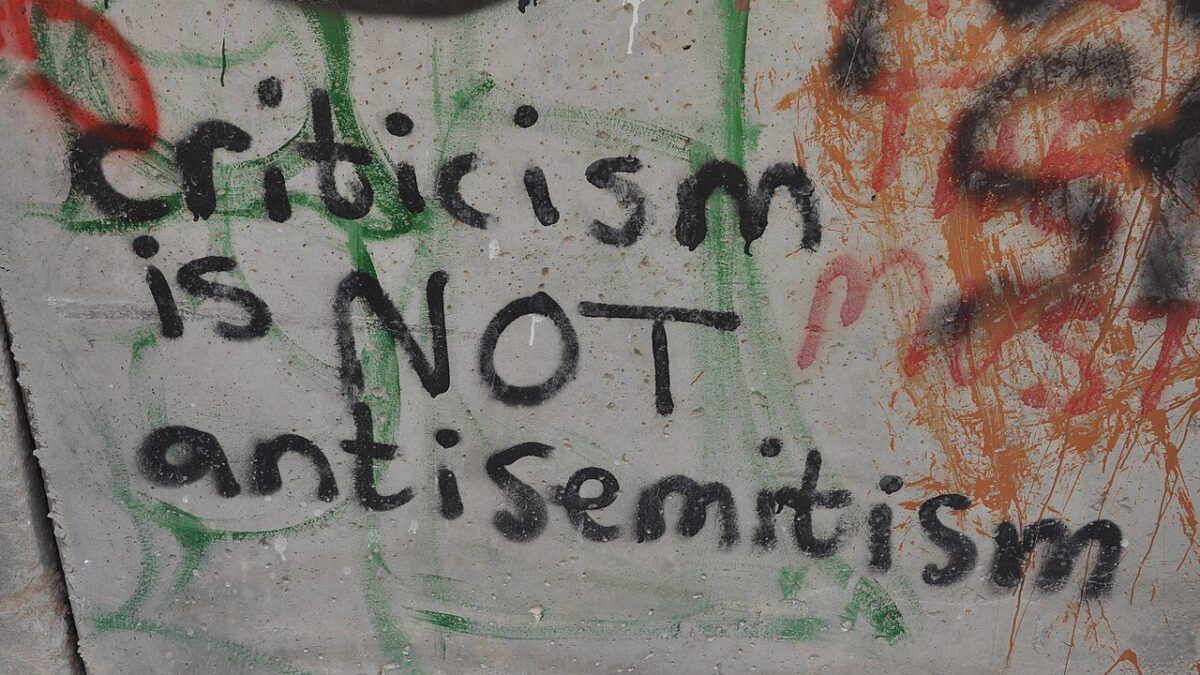
President Obama’s speech Monday on the fight against terrorism was notable for a number of things, including the fact that the candidate who once railed against “endless war” is now the president promising a “generational” struggle. Even more remarkable is the thing that will ensure the struggle goes on forever: the president’s insistence that, “Ideologies are not defeated with guns, they are defeated by better ideas and [a] more attractive and more compelling vision.” With ISIS on the rampage, cutting off the heads of anyone with better ideas or a more attractive vision, this seems more than a bit ridiculous.
But the fact that President Obama has no stomach for a real military fight is not exactly news. What struck me about this, instead, was: why doesn’t he tell us to take this approach toward our domestic opponents? As wildly inappropriate as this strategy is for dealing with a terrorist army that wants us dead, it is totally appropriate for dealing with opponents in our own little culture wars. We should approach them with “better ideas and a more attractive and compelling vision,” rather than with the guns of government force.
This is, in fact, how a great deal of social progress has been made possible in the past. Take one small example that comes to mind. The thing that makes Bill Cosby’s ugly fall from grace so tragic is that for a long time, “The Cosby Show” stood as an example of how moral progress could be achieved by persuasion. One of the most effective ways to combat racism was to get a whole generation of white people to sit in front of our TVs every week and follow the daily details of the lives of a likeable black family. This was the “more attractive vision” that helped replace derogatory stereotypes and served to humanize people who had previously been treated in inhuman ways.
It was the same function that would be filled some years later by “Will & Grace,” which did for homosexual men what “The Cosby Show” had done for blacks.
Since this kind of progress has brought us so far, you’d think we could stick with the better ideas and more attractive visions. But no, we’ve got to get out the guns. We’re doing it indirectly and in a genteel way, of course, because we want to pretend we’re not barbarians. But it’s still the unmistakable stomping boot of coercion. Consider the case of the Christian bakers who refused to cater a gay wedding in Oregon. The family has not only been hit with an enormous, six-figure fine, they’ve been required to pay it out of personal funds so as to ensure their financial ruin, they’ve been subjected to a gag order that prevents them from expressing defiance of the new orthodoxy, and all of this is being applied retroactively to the former owners of a business that has already been wiped out of existence. All tolerance has disappeared, and the message to opponents of gay marriage is: we will use government force to crush you.
All of this seems to be legally sound under existing anti-discrimination laws in many states. But rather than justifying the persecution of Christians, this calls into question the legitimacy of anti-discrimination laws as such.
If you say this, as I just did, you can expect to be accused of being a bigot and basically a defender of segregation and Jim Crow. This is because the gay rights movement long ago declared itself to be the successor to the Civil Rights Movement of the 1950s and 60s—complete with the idea that its opponents are just as evil and deserve to be treated with exactly as little tolerance.
This was always an overblown comparison. The original context for anti-discrimination laws was the need to tear down a comprehensive system of legally enforced exclusion and inferiority. It was not just about white people refusing to bake a cake for a black couple’s wedding. They were required to refuse blacks a whole range of services as a matter of law. Shelby Steele has written about taking family road trips as a kid, and how they couldn’t just pull into a new town and go straight to the nearest restaurant or hotel. Instead, they would drive around until they saw another black person, then ask for directions to the places that would serve people of their color. That’s how all-pervasive the system was.
This explains why the need to break down segregation was considered a special justification for drastic measures. There was some grumbling around the edges, but it was less about the basic principle than it was about the arbitrary application of anti-discrimination laws—for example, the use of statistics about “disparate impact” to punish people who clearly had no intent to discriminate. We all pretty much agreed to drop any debate about the laws against racial discrimination, and even those who objected in theory, on principled libertarian grounds, just weren’t willing to die on that particular hill. Who wants to defend bigots and risk being labeled a bigot?
But it’s a basic rule that once a new government power is established, it will be expanded to its logical limit, and usually beyond. From the beginning, anti-discrimination laws were an infringement on the right of free association, and we’re now starting to appreciate the damage they did to that principle. What we’re discovering is that, when they are applied broadly and with full logical consistency, anti-discrimination laws are incompatible with free association, free speech, and religious freedom. They interfere with the individual’s right to decide who he will do business with, how he can express his views on current political controversies, and whether he can live according to his deepest religious convictions. In the case of gay marriage, it’s about whether Christians can state and act on something that has been an unquestioned tenet of their religion from its founding up until a few years ago. You could hardly come up with a more cut-and-dried violation of religious freedom.
But the problem is not just the legal precedent set by these laws. It’s the mindset behind them. Anti-discrimination laws ingrained the attitude that if someone is really, really bad and unsympathetic, he has no rights worth considering. The government can just force him to do the right thing because his views are repugnant. And who are you to defend him? If you think he has rights, you must have repugnant views, too.
We’ve been trained in the attitude that freedom and tolerance are reserved only for good people we like. But that empties the concepts of any meaning. Freedom to do only what others approve of is not freedom. Tolerance only of ideas most people like is not tolerance. The anti-discrimination laws have helped obliterate any concept of the right to be wrong, of freedom for those the majority regards as outside acceptable bounds.
That’s the legacy we’re seeing, the price we’re paying for the laws enacted in our zeal to knock down Jim Crow. Gay rights activists have figured out that if you can label anyone a “bigot,” he becomes an unperson with no rights. And now we’re just waiting for the next social movement to figure this out and dehumanize the next group of “bigots.”
I could argue that those who have qualms about redefining marriage are not really bigots and have at least some reasonable basis for their views. I could also make a very good argument about how the attempt to impose a new orthodoxy threatens the freedoms of the very people who advocate anti-discrimination laws, how the power they are giving to government could come back to harm them if it ever gets into somebody else’s hands. But I’m afraid this would just feed the very mindset I’m arguing against: the attitude that coercion is bad only when it coerces people we like, that only people who agree with us have rights that need to be respected.
It reminds me of a scene from one of the great cinematic expressions of old-fashioned “liberal” tolerance, the 1960 film Inherit the Wind. When Henry Drummond eulogizes his antagonist, Matthew Brady, heralding his “right to be wrong,” the cynical newspaperman E.K. Hornbeck incredulously replies, “What is this, Be-Kind-to-Bigots Week?”
The point of the scene is that Hornbeck fancies himself more intelligent and progressive than the religious yokels, but his own particular kind of bigotry is to be unable to see the humanity in his opponent.
So please, let’s be kind to bigots. When George Takei insists that blackface is not offensive, or when Joe Biden implies that it’s rare for black men to be clean-cut and well-spoken, or when Hillary Clinton condescendingly affects the accent and cadence of a black Southern preacher, let’s extend a little forbearance for their backwardness.
Or rather, what is required is even less than kindness. You don’t have to like people who disagree with you or talk to them or be nice to them. You don’t have to cooperate with them. But you can’t coerce them. If we still want to live in a free society, it’s time to tear down the mechanisms for the forcing of personal conscience that are embodied in the anti-discrimination laws.
In a free society, better ideas and more attractive visions really can work wonders and produce incredible social transformations. We’ve seen it happen. Let’s stick with that and give up on the totalitarian dream of beating down all dissenters by force.
Because within the context of a free society, the president is right: ideologies are not defeated with guns.
Follow Robert on Twitter.









